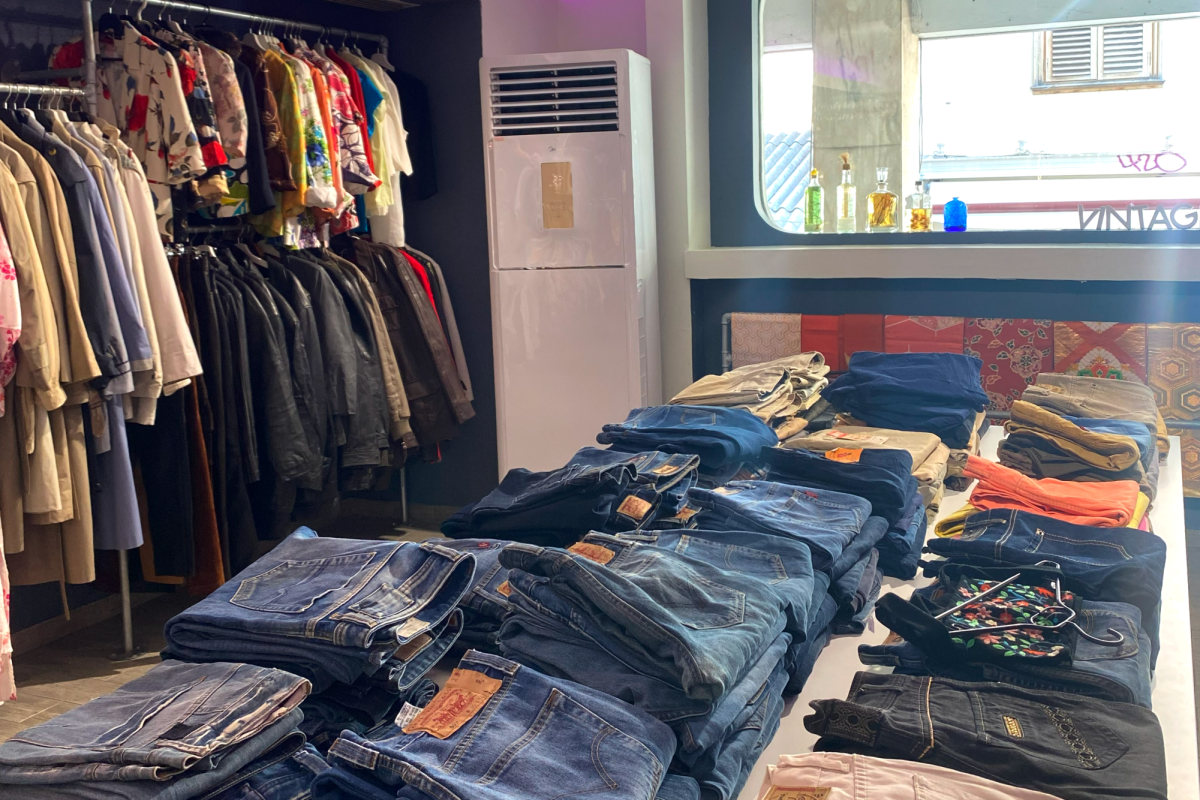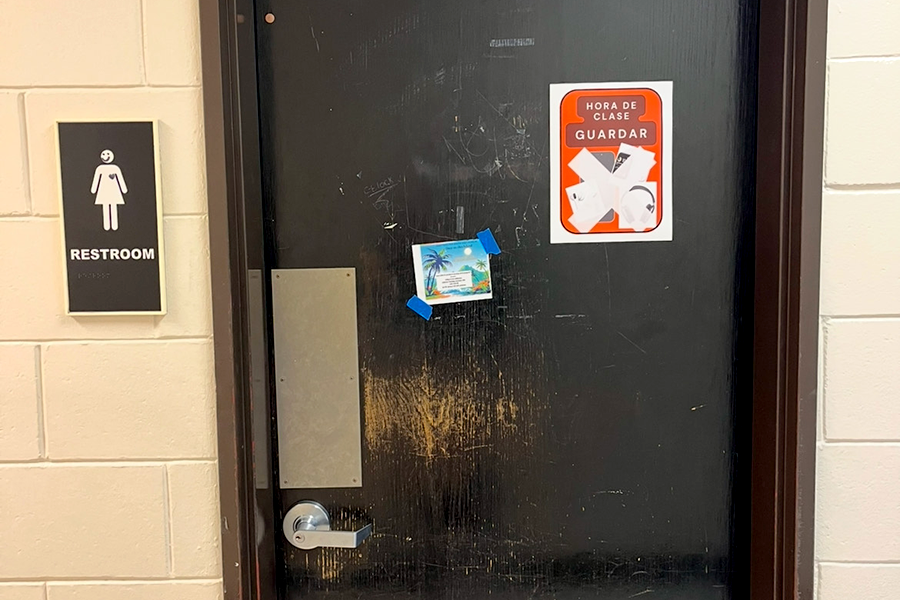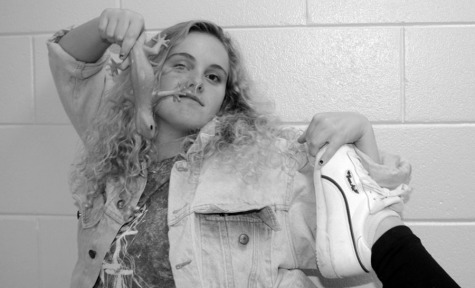“Usually people just text or call. Then I bike or drive, we meet up, and exchange. It’s pretty simple,” a South student explained about their average drug deal.
For the purpose of anonymity, this drug dealer will be named Jay. “I just started dealing and it hasn’t changed my life that much really,” Jay stated.
Illicit drug use by high schoolers, specifically marijuana, has risen in recent years.
The National Institute on Drug Abuse (NIDA) stated that in 2012 approximately 30% of High School seniors used marijuana in the past month compared to only 19% monthly use in 2007.
Jay explained that getting into the business seemed easy, natural, and kind of fun.
“A lot of my friends deal and I wanted the money. I’m pretty careful and not much has changed,” Jay said. “It’s also pretty easy to deal in high school because you can talk to people who want to buy in class or the halls and meet up at lunch or after school. It’s easy to find buyers in school.”
An anonymous buyer, who will be named Mary, spends up to thirty dollars weekly on marijuana. Mary elaborated on the idea of high school being a good place to find dealers.
“Everybody knows somebody who sells, and in school you can bring up buying to the the person relatively casually. Its better than awkwardly texting a guy you know nothing about. Tried that once, super sketchy and scary,” she laughed.
A former South dealer links the sketchy and dangerous nature of some situations while dealing to his decision to stop.
“The guy I was picking up from so I could sell was really drunk. The amount he gave was less than we agreed on so I rejected it. I got punched in the face and then I ran away. I realized the legal and physical risks just weren’t worth it,” he said.
Legal risk is a huge factor in the lives of many dealers. Possessing anything more than five grams of marijuana can result in a felony and a $10,000 minimum fine.
Anne Gorton, the chemical health counselor at South, said that students often have misconceptions about the definition of dealing, and these misconceptions can get them into lots of trouble.
“If drugs are passed on from one friend to another, students might not consider it an official drug deal, but the police do. One thing students should realize is that there’s no legal difference between friends selling to friends and buying from an official dealer,” explained Gorton.
Selling marijuana on school property, no matter who it’s to, can result in a felony, up to 15 years in jail, and a $100,000 dollar fine.
These severe laws aren’t always present in the minds of South’s dealers, but sometimes the risk can become very real.
An anonymous student drug dealer, who will be named John, felt the presence of these legal risks in an intense run-in with the cops.
“I was acting sketchy in my friend’s alley and I had a lot [of marijuana] on me at the time. The cops got so close they tried to rip me off my bike but they ripped my shirt and I got away. I could’ve gotten a felony, I was lucky,” John said.
John explained that although he had a close call, surprisingly not much else in his life has changed.
“I spend maybe an hour or less a day dealing. Socially and at school not much changed, maybe a little bit at home but my parents aren’t too nosy. They ask about where I’m going and pick up on it sometimes, but its really not too bad,” he noted.
Jay agreed that socially and academically life stayed the same, but the atmosphere of his home life did shift once dealing became a part of his daily routine.
“I got caught smoking once and now a lot of little things at home have changed,” Jay explained. “My grandma asks to see my receipts if I say I’m going to get food, small things like that. The trust changed a little, honestly not much else.”
Gorton agreed that one of the risks associated with dealing or selling is the change in relationships.
“Kids who get caught have a very different relationship with their parents. The level of trust and the way they interact is different and rebuilding that trust is always a process,” she said.
Student buyer Mary did notice a difference in the way she interacted with students after she realized they were dealers.
“I wasn’t just normal friends with them anymore, I was friends with them for a purpose. I knew them as ‘the dealer’ not as ‘that person from math, or history, or science.’ It changes how you look at them a little,” Mary said.
“When I buy from someone, I want to get the weed and leave. Sometimes I smoke with them, but that seems sort of forced. Its kind of sad but it’s easier to just keep friends and dealers separate.”
Although some relationships might have changed because of dealing, all the students agreed on the main thing driving them to sell: money.
The Huffington Post reported that the average part time marijuana dealer makes between $100-$600 a week depending on location, hours worked, and general ability of the dealer.
Another former dealer, who will go by Jason, said, “I made an average of about $400 a week, which was nice, but also I got in trouble.” Jason further explained, “The parents started asking where I got all this money from, and they figured it out. The consequences weren’t as bad as they could’ve been though, I just got grounded for a while. I still decided to stop dealing though.”
While parents may not give severe punishments, the school responds harshly to dealers who are caught. Dealers can face heavy suspensions or expulsion, in addition to legal penalties.
When dealers are forced or decide to stop dealing, the process of getting out of the game isn’t always an easy one.
Buyers are often unaware of the former dealer’s decision, and the pressure of friends or lack of money can make the transition very difficult.
Principal Cecilia Saddler addressed the difficulty for dealers to stop, saying it’s important “to work through peer pressure, a person has to feel that they can safely talk.”
At South, Gorton is an available resource for students looking to stop dealing. “Anything that impacts a student negatively… [is] always going to be a concern to us at South,” said Saddler.
“Sometimes when I’m just chilling or people hit me up for weed I imagine how easy it would be and how much money I could be making, but I still don’t do it,” Jason explained about sticking with his decision to stop dealing. “I never felt bad about actually dealing; it’s just safer if I don’t.”
Mary shared Jason’s lack of guilt when it came to the act of dealing and smoking marijuana.
“I don’t feel morally bad at all. Dealing and smoking are super common, aren’t that harmful, and smoking’s just a fun social thing to do. I’ve been told ‘all drugs are bad’ since kindergarten, but especially with the legalization laws its way more accepted now.”
The NIDA states that as the perceived risks of using marijuana drop, the rate of use rises. The perceived risk of using has dramatically dropped from 2009 to 2012. NIDA explained this rise in use and acceptance as a possible reaction to recent social and political movements surrounding marijuana.
According to the NIDA, “Young people are showing decreased perception that marijuana is dangerous. The growing perception of marijuana as a safe drug may reflect recent public discussions over medical marijuana and marijuana legalization.”
Gorton said that although the perception of marijuana as a safe and risk free drug is growing, students should understand the reality of the risks surrounding drug use.
“The laws about marijuana might be changing but it will always be illegal for teens. It has long-term effects on development, too,” she said.
Although risks are high, the convenience and profitability of dealing illicit drugs in high school seem to continue to make this a popular part-time job. As Jay said, “I just got started, and it’s going well. I’m making money and I don’t plan on stopping.”







